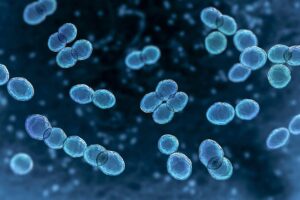diet
Gastroenterology, Nutrition
The findings of a recent study suggest that Ruminococcus bacteria were more prevalent in ancient human populations and non-industrialized societies, likely due to the high dietary fiber intake.
Gastroenterology
The results of a recent study suggest that certain dietary changes can counteract bacterial functions that promote disease. The findings thus underscore the importance of examining microbial functions to understand…
Gastroenterology, Nutrition
Two weeks of dietary intervention are sufficient to influence host immunity, metabolism and gut microbiota composition.
Pediatrics
The findings of a recent study suggest that the microbiota-derived metabolite phenyllactic acid can prevent antibiotic-associated obesity in early life.
Gastroenterology
The findings of a recent study suggest that resistant-starch supplements can alter the gut microbiota in ways that alleviate NAFLD.
Nutrition, Video
Together with Professor Lorenzo Morelli we focused on the significant role of diet and the microbiome in terms of health benefits, food production, and agri-industry systems.
Gastroenterology, Nutrition
Diet-induced changes in the gut microbiota confer protection against respiratory infections by regulating the development of key components of the immune system.
Gastroenterology, Nutrition
Specific gut bacteria and/or metabolites could be responsible for the differential responses to weight management.
Endocrinology, Gastroenterology
The findings of a recent study may inform dietary interventions to help protect people against type 1 diabetes and other autoimmune diseases.
Gastroenterology, Industry
Leigh Frame, Director, Integrative Medicine, GW School of Medicine & Health Sciences in Washington, discussed how to exploit metabolomic and genomic data to identify diet-specific signatures.











